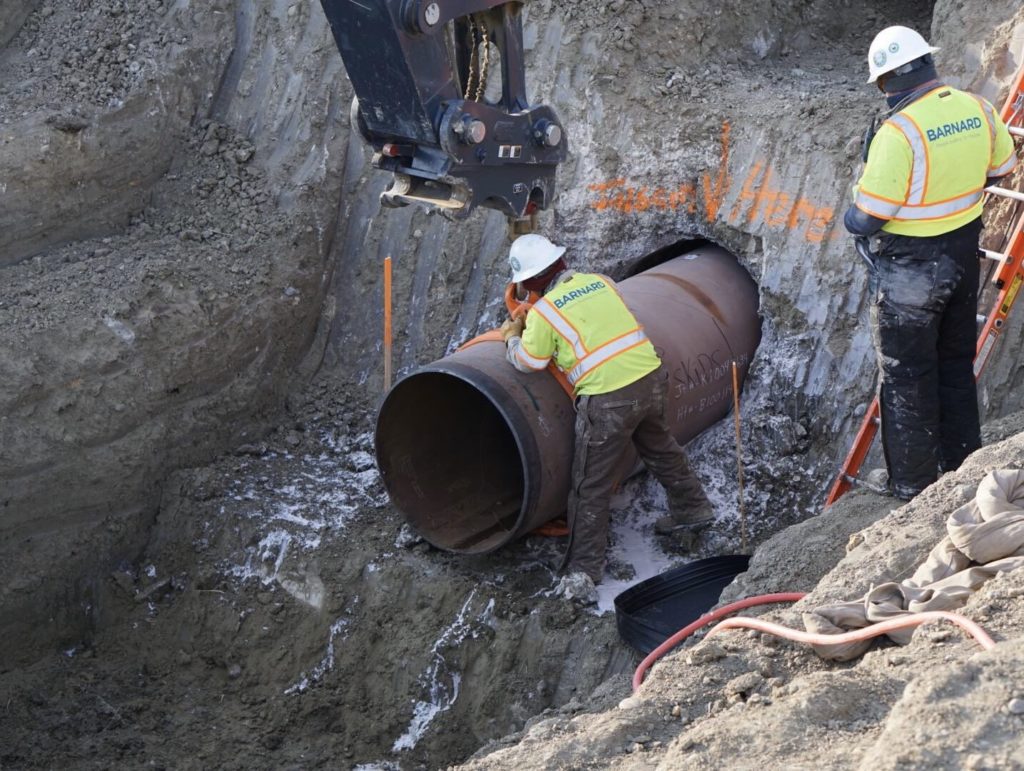
The U.S. pipeline regulator launched a review this year of its special permits that waive certain operating requirements for pipelines, following a government report into spills on TC Energy’s Keystone oil pipeline, a source familiar with the matter said.
The review for U.S. Pipeline and Hazardous Materials Safety Administration (PHMSA) highlights growing questions by legislators about whether such permits contribute to spills. The most recent major spill occurred this month in rural Kansas along Keystone, the only U.S. oil pipeline with a special permit to operate at higher pressure.
TC shut the 622,000 barrel-per-day pipeline, which has been operating for 12 years, after it spilled 14,000 barrels on Dec. 7, its third major spill in five years.
PHMSA commissioned Oak Ridge National Laboratory, a Department of Energy research institution, to review special permits following a 2021 report on Keystone accidents, the source said. Laboratory spokesperson Sara Shoemaker declined to comment.
The review includes the program itself and individual permits, including Keystone’s, the source said.
The review began with a meeting between PHMSA and the laboratory on Aug. 16, several months before Keystone’s latest spill.
TC has submitted a plan to restart the ruptured section of Keystone. In a statement, the company said Keystone’s special permit was rigorously reviewed by government officials and pipeline experts, and its terms did not cause past incidents.
The 2021 report to Congress by the U.S. Government Accountability Office (GAO) found that TC Energy performed worse than nationwide averages in the previous five years due to major spills in 2017 and 2019. PHMSA allowed Keystone to run at higher pressure than other pipelines starting in 2017, subject to 51 conditions.
The latest Keystone spill raises doubts about whether PHMSA adequately assesses risk in granting special permits, said Don Deaver, a pipeline consultant.
“I don’t think they should give any (special permits),” Deaver said. “There’s problems with the rules we’ve already got. Pipelines operate at very high stress levels and they have very low tolerance for mechanical damage or defects.”
The 2017 Keystone incident near Amherst, South Dakota spilled 6,592 barrels of oil, caused by a crack originating from damage during construction.
It’s unlikely that PHMSA can properly enforce special permit conditions for the vast pipeline industry, said Josh Axelrod, senior advocate at environmental group Natural Resources Defense Council.
“I don’t think PHMSA is staffed to justify (special permits) because it’s not a big regulator and is responsible for tens of thousands of miles of pipeline,” Axelrod said. “If they’re relying on industry self-reporting or data, it’s in industry’s best interest to keep their pipeline operating.
Richard Kuprewicz, president of pipeline safety consulting company Accufacts, said he suspects a faulty weld joining two segments caused the Kansas spill. TC has not publicly identified a cause.
“It probably has nothing to do with the special permit conditions,” Kuprewicz said.
PHMSA has denied 27 special permit applications since 2009 and approved 112. Six of those denied applications were from TC Energy, more than any other company.
PHMSA’s reasons for denying permits range from TC not complying with existing conditions by failing to make regular patrols, to PHMSA deciding the permit request would not be safe.